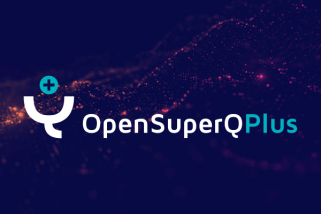Computing
QLSI - Quantum Large Scale Integration in Silicon
QSLI will demonstrate that silicon spin qubits are a compelling platform for scaling to very large numbers of qubits.
The project
Quantum computers could provide breakthroughs in many disciplines. However, the number of qubits needed for a useful quantum computer, one that could compete with a classical PC in solving complex computational problems, is in the hundreds of thousands. Silicon spin qubits are an appealing alternative to competing qubit technologies. Our project aims to demonstrate that silicon spin qubits are a compelling platform for scaling to very large numbers of qubits. Demonstration activities will focus on the following:
- Demonstration of high-fidelity (>99%) single and two-qubit gates, read-out and initialization;
- Demonstration of a quantum computer prototype, with online open-access for the community (up to 8 qubits available online);
- Documentation of the detailed requirements to address scalability towards large systems >1000 qubits.
To achieve these results, our consortium brings together an unrivalled multidisciplinary team of European groups in academia, RTOs and industry working on silicon-based quantum devices. These groups are committed to playing an active part in developing the industrial ecosystem in silicon-based quantum technologies. QLSI is structured in three enabling toolboxes and one demonstration and scalability activity.
- The semiconductor toolbox brings together skills from the semiconductor industry such as fabrication, high throughput test and CAD (computer-aided design) with the expertise of the physics community;
- The quantum toolbox gathers skills from the physics community on spin and quantum properties of Si-based nanostructures and quantum engineering from theory and experience perspectives;
- The control toolbox gathers teams with instrumentation skills ranging from RF signal generation, automation and set up of high throughput characterization at low temperature.
The toolboxes will generate stand-alone beyond the state-of-the-art results and will generate inputs to feed the demonstrator and scalability activity, which will integrate devices, hardware and software solutions to create an online open-access demonstrator, to perform hybrid computation and to analyze scalability.
This project has received funding from the European Union’s Horizon 2020 research and innovation program under grant agreement No951852.



